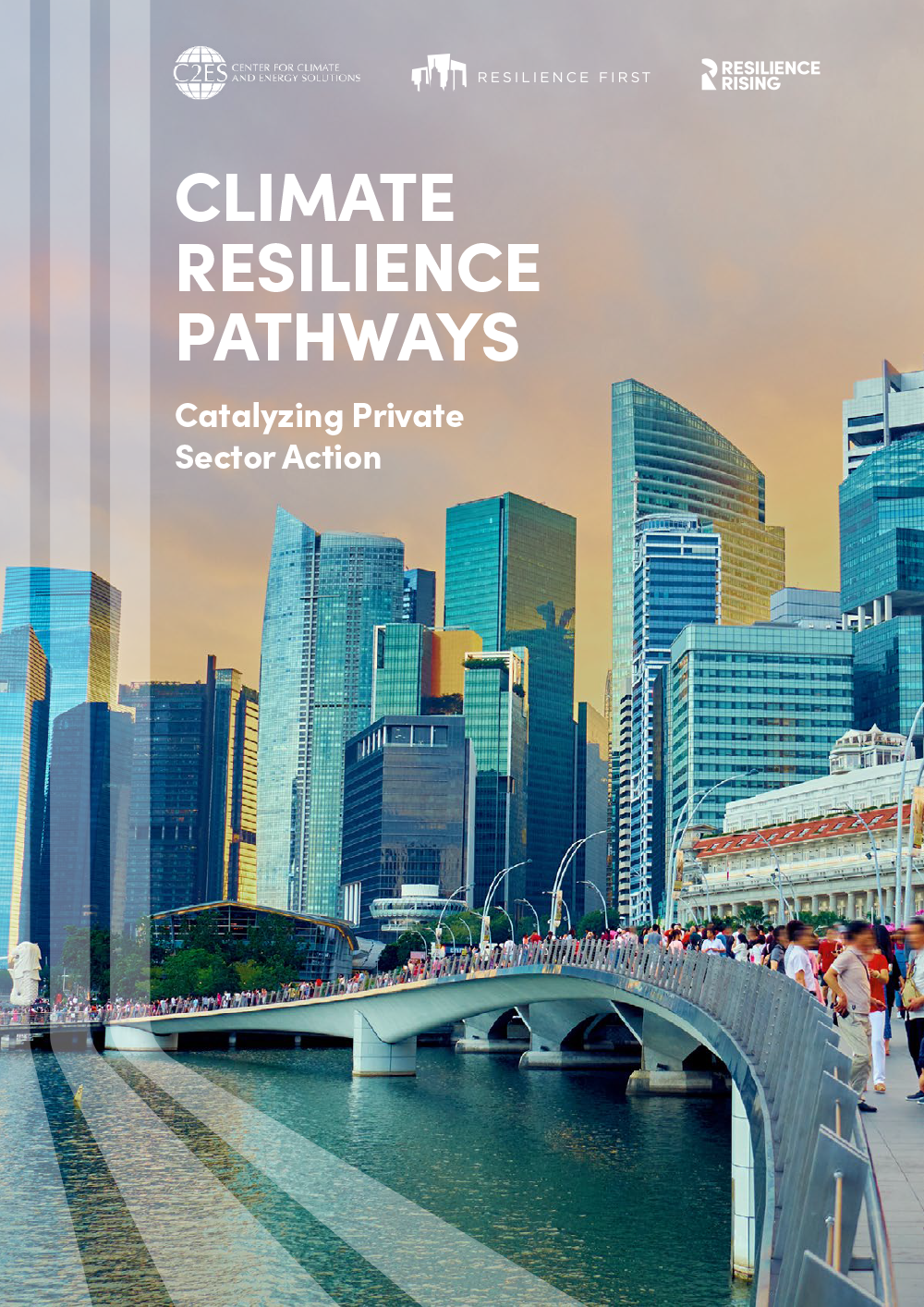Developed with input from nearly 70 thought leaders, the new report and principles present a bold vision for a resilient economy and are a key milestone of the Corporate Climate Resilience Pathways Initiative.
Climate change poses an urgent threat. As the backbone of the global economy, businesses play a pivotal role in driving forward resilience and mitigating the dire impacts of climate change.
As part of the Corporate Climate Resilience Pathways initiative, Resilience First, Resilience Rising and The Center for Climate and Energy Solutions (C2ES) have launched a new report and set of principles which aim to empower companies towards decisive action to enhance their resilience and contribute to creating a global ecosystem of resilient business practices.
The Climate Resilience Pathways: Catalyzing Private Sector Action report not only presents a compelling case for businesses to invest in climate resilience but also unveils a set of guiding principles developed by and for the business community, crafted through a collaborative effort that includes nearly 70 thought leaders in climate, sustainability, strategy, and risk management. The principles build on the momentum of the Race to Resilience Campaign and the Sharm El-Sheik Adaptation Agenda to mobilize non-party stakeholders towards clear 2030 global adaptation targets and galvanize leadership and investment.
"This initiative stands as an important signal to businesses, investors, and policymakers that there exist companies deeply committed to advancing climate resilience."
H.E Razan Al Mubarak, UN Climate Change High Level Champion for COP28 UAE.
Designed for broad endorsement and adoption by private enterprises globally, the principles aim to foster a common understanding among industry leaders about corporate leadership and assert a common view that companies leading on climate resilience are:
- Science-based & Proactive: Companies acknowledge and assess the acute and chronic risks presented by the physical impacts of climate change and implement best practices and investments that enhance resilience across the value chain.
- Transparent & Accountable: Companies regularly measure and report assessed climate risks, adaptation actions, and their impacts in a consistent and transparent manner.
- Safeguarding & Enhancing: Companies employ practices that safeguard against maladaptation and increased vulnerability to physical climate hazards and strive to enhance the adaptive capacity of communities and natural ecosystems.
- Inclusive & Equitable: Companies strive to collaboratively engage value chains and local communities to understand and improve decision-making, contribute to systemic needs and priorities, and drive the implementation of equitable climate adaptation and resilience investments.
- Transformative: Companies support and pursue climate adaptation solutions that enable positive systems-level transformations within their organizations, industry sectors, and value chains, and in communities and natural ecosystems.
"The innovations and investments businesses make can be pivotal in fortifying and transforming operations, supply chains, and communities to prepare for and adapt to the physical impacts of climate change. This innovative initiative will chart a course for meaningful corporate action – catalyzing private sector investment in adaptation and resilience, and igniting systemic transformation for a robust global economy."
Seth Schultz, CEO of Resilience Rising
Download the Report and Principles here
Launch Webinar
The report was launched at a webinar on 21 March 2024. The speakers will explored what drives private sector investments and what it will take to accelerate resilience action.
Speakers:
- Jess Filante, Director, Global Environmental Sustainability, AT&T
- Nat Keohane, President, Center for Climate and Energy Solutions
- Emily Wasley, Head of Climate and Biodiversity, Meta
- Seth Schultz, CEO, Resilience Rising
- Nick Faull, Head of Climate and Sustainability Risk & Innovation, Marsh
- Peter Hall, Managing Director – Climate Impact Advisory, Resonance
- Verena Radulovic, Vice President for Business Engagement, Center for Climate and Energy Solutions
- Racquel Moses, UNFCCC Global Ambassador and Chief Executive Officer, Caribbean Climate-Smart Accelerator




